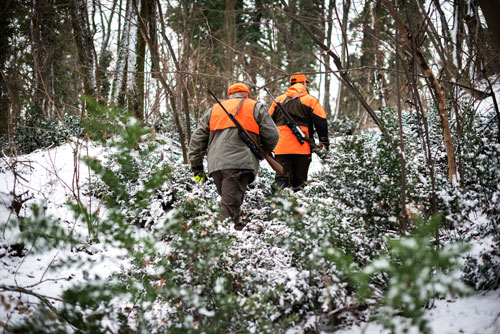Tips for Hunting During COVID-19
Minnesota’s firearm deer hunting season opens soon and spending time outdoors can provide a boost in mental and physical health. During COVID-19, it will take some planning ahead and perhaps some changes, but hunters should be able to continue their deer hunting traditions and do what they love while keeping everyone safe. By following the tips below, hunters should be able to focus on bringing home venison — not a virus.
- Know who is in your hunting party and their level of exposure to COVID-19. Did your brother decide to bring a buddy from work? Have those conversations about the impact of COVID-19 and how it could mean being out of work, spreading it to your family or those who might have a severe reaction to it.
- Limit your hunting party to people in your immediate household, if possible.
- Travel as directly to your destination as possible and minimize stops along the way.
- Attempt to bring all needed food, supplies and gear with you.
- Most hunting is done physically distant from others, but there are a few locations that don’t allow for adequate space between individuals — such as in blinds, treestands and vehicles like side-by-sides. Care also should be taken when sharing blinds and stands between hunts, especially if they are enclosed. Masks should be worn when in vehicles with others.
- If you are in close contact with members of your hunting party, wear a mask if you’re not able to stay six feet apart.
- If you’re spending the night, be aware of the sleeping arrangements and make sure there is plenty of room.
- When preparing meals for the hunting group, forgo the buffet-style meals. Do pre-packed or individual servings so germs aren’t shared.
- Use your own equipment and do not lend or borrow gear. If you must lend your equipment or use some that is not yours, plan to bring with you the necessary products to wash your hands and disinfect the gear.
- If you’re sick or if you know you’ve been exposed, DON’T GO.
- Once an animal is harvested, consider processing it yourself at home.
